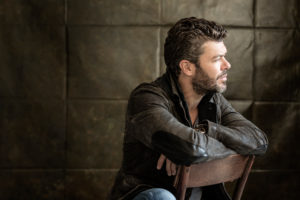
Q&A: Pablo Heras-Casado On The Spanish Premiere Of ‘Die Soldaten’
By Francisco SalazarMadrid’s Teatro Real is set to present the first-ever performances of Bernd Alois Zimmermann’s “Die Soldaten” in Spain. The occasion will see Spanish conductor Pablo Heras-Casado, the theater’s Principal Guest Conductor, in the pit with a distinguished cast and Calixto Bieto directing.
Zimmermann’s only opera is one of the most challenging and extraordinary pieces in the 20th-century and when Oper Köln (Germany) commissioned the work, the company rejected the opera because of the technical challenges.
OperaWire spoke with conductor Heras-Casado about the significance of the work, its challenges, as well as preparing to conduct a new composer.
OperaWire: Why is “Die Soldaten” an essential work, in your eyes?
Pablo Heras-Casado: It’s one of the masterworks of the 20th century and I thinks it’s the second most important opera of the 20th century. It’s a fundamental work like “Wozzeck” and I think little by little it will have a place in the standard repertoire. It is a difficult opera and extremely expensive. But it’s great to see an opera house perform it and this will be the Spanish premiere, so that is important.
OW: What is so challenging about this work?
PHC: The musical language is extremely complex and technically, especially for the singers, it’s challenging. The orchestra is huge and at times there are two different things happening in the scene. So, as a result, there are two pieces of music happening parallel to each other. And there are groups playing in diverse parts of the theater, while the orchestra is in the pit. It has actors, orchestra, recorded music, a huge chorus, and projections. So it is a complex work to put together.
OW: What is the process when you’re learning a piece this complex?
PHC: When it’s a work this large and long, you always get more rehearsal. Of course, I also need to prepare the score beforehand. Since it’s a new score for me and I am studying it for the first time, I read it firs and look at the structure of the opera, the tempos, the orchestration, and the material and understand it well. I need to visualize it as well and have it in my head. With my experience, I can also start looking at what parts are going to be the most challenging and which are going to be the parts that I will have to spend the most time with.
OW: With so many challenges this opera offers, will it change the process of your work with the singers or is it the same?
PHC: It’s the same. We rehearse with the piano, I listen to them, give them feedback and information. In the case of “Die Soldaten,” I have to work on the Rhythmic precision, intonation, and the synchronization with the music. I also work with the text. The most important thing is that when we work together, we get to know each other and know how to react to each other.
OW: How does it feel to be conducting the Spanish premiere of this important work?
PHC: It’s an honor and a great responsibility. And I’m extremely happy to be the one doing it for the first time in my country. The Teatro Real is my home and it is one of the greatest European theaters in the world. It’s a theater I know very well and I have worked there so many years. The work there is of the highest level and the personnel is extremely committed. It is very stimulating working there.
OW: Have you ever conducted anything by Zimmerman? And if not, what is it like to discover a new composer?
PHC: It’s the first time I have ever done one of his pieces so it is always interesting. You know when I’m working on a new composer, I sometimes look at some of his/her other work. It’s important to know the context of the work and the time as well as the style so it’s better informed.
OW: Opera has become more of a director’s medium in recent years. What is your relationship with the director and in this case Calixto Bieto?
PHS: The idea is to help each other and create an environment and hope that his idea is supported by my work and vice versa. One hopes that the director’s concept will also help the music. When there is a director that has great ideas and knows the work to such great detail, it is amazing to work with the director and Bieto has a lot of that. This particular production of “Die Soldaten” has already been done and I had seen a lot of the concept work before. It’s a really great production.
OW: You recently did a production of Bizet’s “Carmen” at the Aix-Provence, where texts were changed. What was the process like and do these modern productions appeal to you?
PHS: The speaking text changed but musically it was the same. That was not a big deal for me. Those texts have always been adapted, changed, and cut may times so it wasn’t a big deal. The texts were changed to adapt to the theatrical concept and musically it changed nothing. In many cases, it helped give another perspective to the music and allowed for a new interpretation and that is always fascinating. I like modern productions but they have to bring something interesting to the work. They have to be intellectual and thoughtout so it can enhance the work. But I also like traditional productions. There are many that are very expressive and say a lot. I don’t want to see a production that is just decorative. So it goes both ways. With “Carmen,” I learned and saw something new in the work. That’s what I hope to get out of the future productions I do.


